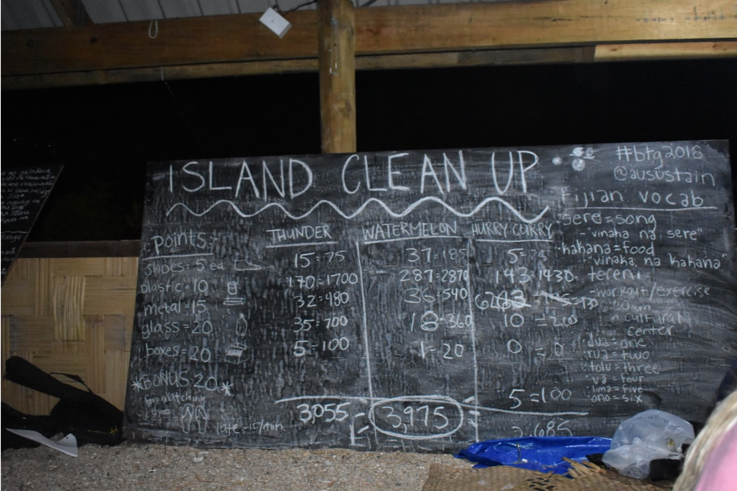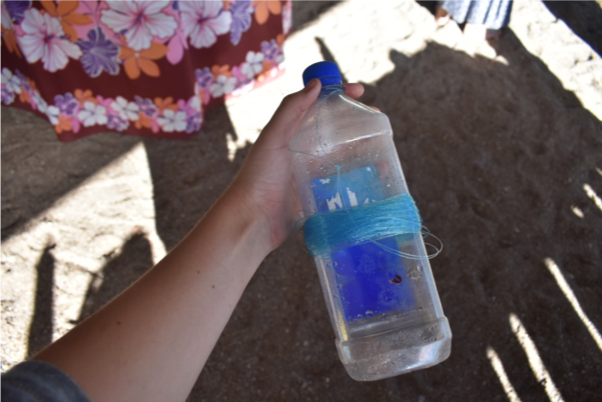Post Contributed by Haley Turner, Psychology & Global Studies Major, Junior at Auburn University
We have all heard the saying “reduce, reuse, and recycle” since we were little kids, but do we actually practice what we preach? This summer I had the incredible opportunity to study abroad in New Zealand and Fiji for six weeks and I was able to learn about sustainable practices. Throughout this time, I was able to consider how my actions can affect the environment and how to effectively “reduce, reuse, and recycle”. In New Zealand, I saw many different ways to protect the environment and reduce energy and water use. During my time in Fiji, I was able to see how outsiders’ actions affect the environment around them and how to reuse and recycle products that could otherwise be wasted.
After spending about two weeks in New Zealand, I learned many new sustainable and eco-friendly actions that make the environment a better place to live. One of the main sustainable practices that I noticed in New Zealand was in the bathroom. Every toilet in New Zealand was filled very low with water and had an option for flushing with less water. If you think about how many times a public toilet is flushed in one day, the amount of water that these toilets save compared to toilets in America is a large amount. In addition to reducing water use, there were plenty of other sustainable practices found in New Zealand that could be implemented in the United States. A few examples of these are using reusable cups in coffee shops, using reusable bags in stores instead of paper or plastic bags, and encouraging those around you to recycle.

The results of the island clean up game. In just 20 minutes over 500 pieces of waste were found. Photo credits: Emily Ollero
Fiji was a very different experience and environment than New Zealand. New Zealand was more of a developed country, the sustainable practices used in Fiji were very different than those I saw in New Zealand. In Fiji, I saw the effects of people not properly disposing of their waste. One day we went on a hike and ended up on a beach that was littered in plastic bottles and other waste. We were told that this waste flows from the mainland and is the result of people mindlessly throwing their trash into the river. The people on the mainland probably do not think twice about littering because they do not see where the waste is going. Little did they know a lot of this waste was going right to an island filled with lovely people who have to spend their time going around and picking up the trash. Towards the end of our stay on the island, we had a big island clean up. We were split into teams and given twenty minutes to go around the island and pick up as much trash as we could. By the end of the twenty minutes, the amount of waste that we found was astonishing. This game caused me to really consider how my actions can affect others and how much waste can affect others’ lives.
A common practice on Vorovoro, the island that we stayed on most of the time, is reusing plastic and glass bottles. I remember one morning I had finished off a jar of peanut butter and I went to throw it in our recycling bin and was stopped in my tracks. I was told that these jars are rinsed and reused for other things. This thought never crossed my mind because that is not something that I typically do at home. A great example of this resourcefulness and reusing is when I created a fishing tool. Api, our boat captain, told me to go collect a few water bottles one day so that we could make fishing lines. So, I collected these bottles and we wrapped a fishing line around them so that they can be used as a fishing rod.

A water bottle with fishing line to be used for fishing Photo credit: Haley Turner
Simple actions like reusing a peanut butter jar and using an old bottle for fishing can be so effective and help the environment as well. That peanut butter jar and water bottle could have been littered and ended up on someone else’s island for them to clean up, but instead, they are put to good use and save others from having to clean them up.
So, what can we do in Auburn to be more sustainable? According to the sustainability compass, nature, economy, society, and well-being need to be working together and in sync in order to create a sustainable environment. The Auburn community should work together as a society to keep the environment sustainable and healthy. Something so easy that everyone can do is to use reusable cups. Auburn has many water fountains where we can fill up water bottles; so, put down your case of plastic water bottles and pick up your super cool reusable bottle. Additionally, using your own bags for your groceries or at other stores can save a few plastic or paper bags from being used and eventually thrown out. Lastly, and most importantly, be conscious about your decisions. Make sure to reduce your use of that create waste; make sure to reuse things that can be reused; and make sure to recycle products that can be recycled to make Auburn an even better place to live for those in the future.




